Filter by
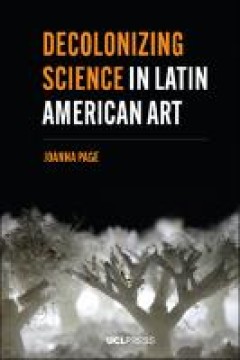
Decolonizing science in Latin American art
Projects that bring the ‘hard’ sciences into art are increasingly being exhibited in galleries and museums across the world. In a surge of publications on the subject, few focus on regions beyond Europe and the Anglophone world. Decolonizing Science in Latin American Art assembles a new corpus of art-science projects by Latin American artists, ranging from big-budget collaborations with NAS…
- Edition
- -
- ISBN/ISSN
- 9781787359765
- Collation
- xi, 288 p. : ill.
- Series Title
- -
- Call Number
- 709.8 PAG d
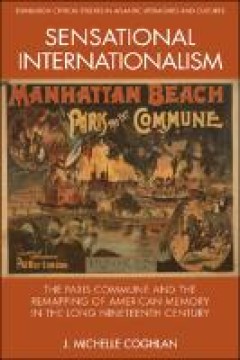
Sensational internationalism : the Paris Commune and the remapping of America…
In refocusing attention on the Paris Commune as a key event in American political and cultural memory, Sensational Internationalism radically changes our understanding of the relationship between France and the United States in the long nineteenth century.
- Edition
- -
- ISBN/ISSN
- 9781474411226
- Collation
- xii, 240 p. : ill.
- Series Title
- -
- Call Number
- 970.980 COG s

HUMAN CAPITAL VERSUS BASIC INCOME : ideology and models of anti-poverty progr…
Latin America underwent two major transformations during the 2000s: the widespread election of left-leaning presidents (the so-called left turn) and the diffusion of conditional cash transfer programs (CCTs)—innovative social programs that award regular stipends to poor families on the condition that their children attend school. Combining cross-national quantitative research covering the ent…
- Edition
- -
- ISBN/ISSN
- 9780472902774
- Collation
- xv, 288 p. : ill.
- Series Title
- -
- Call Number
- 130.63 BOR h
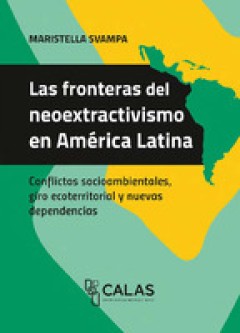
Las fronteras del neoextractivismo en américa latina : conflictos socioambie…
This book analyzes the progress of neoextractivism in Latin America through four fundamental nuclei: the first proposes the categories of neoextractivism and Consensus of Commodities as privileged windows to read the current crisis; the second analyzes the phases of neoextractivism from 2003 to the present; the third addresses the social resistance and the new political grammars from the concep…
- Edition
- -
- ISBN/ISSN
- 9783837645262
- Collation
- 144. p.
- Series Title
- -
- Call Number
- 303.6098. MAR l
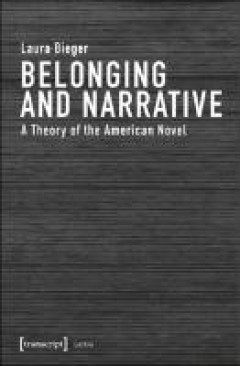
Belonging and narrative : a theory of the American novel
Why did the novel become so popular in the past three centuries, and how did the American novel contribute to this trend? As a key provider of the narrative frames and formulas needed by modern individuals to give meaning and mooring to their lives. Drawing on phenomenological hermeneutics, human geography and social psychology, Laura Bieger contends that belonging is not a given; it is continu…
- Edition
- -
- ISBN/ISSN
- 9783839446003
- Collation
- 182 p.
- Series Title
- -
- Call Number
- 813.0093552 BIE b
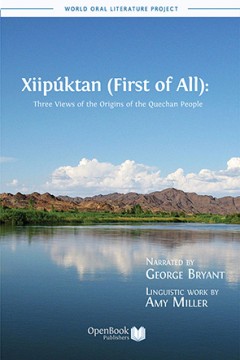
Xiipúktan (first of all): three views of the origins of the Quechan people
The Quechan people live along the lower part of the Colorado River in the United States. According to tradition, the Quechan and other Yuman people were created at the beginning of time, and their Creation myth explains how they came into existence, the origin of their environment, and the significance of their oldest traditions. The Creation myth forms the backdrop against which much of the tr…
- Edition
- -
- ISBN/ISSN
- 9781909254411
- Collation
- 210 p. ; 24 cm
- Series Title
- -
- Call Number
- 973.0497 BRY x

The search for the first americans : science, power, politics
"Who were the First Americans? Where did they come from? When did they get here? Are they the ancestors of modern Native Americans? These questions might seem straightforward, but scientists in competing fields have failed to convince one another with their theories and evidence, much less Native American peoples. The practice of science in its search for the First Americans is a flawed endeavo…
- Edition
- -
- ISBN/ISSN
- 9780806175935
- Collation
- ix, 163 p.
- Series Title
- -
- Call Number
- 970.00497 DAV t
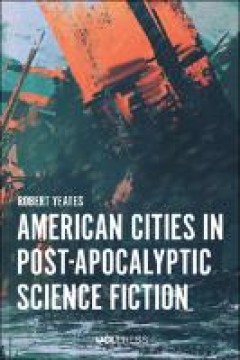
American cities in post-apocalyptic science fiction
Visions of the American city in post-apocalyptic ruin permeate literary and popular fiction, across print, visual, audio and digital media. American Cities in Post-Apocalyptic Science Fiction explores the prevalence of these representations in American culture, drawing from a wide range of primary and critical works from the early-twentieth century to today. Beginning with science fiction in li…
- Edition
- -
- ISBN/ISSN
- 9781800080980
- Collation
- ix, 201 p. : ill
- Series Title
- -
- Call Number
- 810.9321732 YEA a
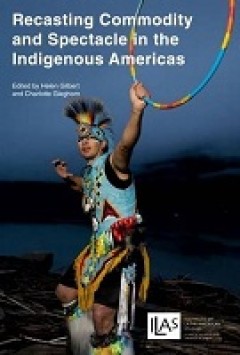
Recasting commodity and spectacle in the indigenous Americas
Indigenous artists frequently voice concerns over the commodification of their cultures, a process acutely felt by those living with the consequences of colonialism. This timely book, which features colour illustrations throughout, examines the ways in which contemporary indigenous peoples in different parts of the Americas have harnessed performance practices to resist imposed stereotypes and …
- Edition
- -
- ISBN/ISSN
- 9781908857088
- Collation
- ix, 273p.
- Series Title
- -
- Call Number
- 700.98 REC g
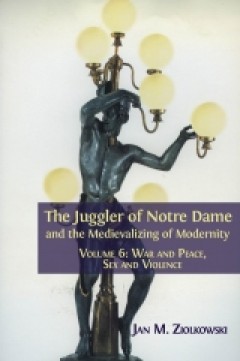
The juggler of Notre Dame and the medievalizing of modernity : volume 6 war a…
This ambitious and vivid study in six volumes explores the journey of a single, electrifying story, from its first incarnation in a medieval French poem through its prolific rebirth in the nineteenth and twentieth centuries. The Juggler of Notre Dame tells how an entertainer abandons the world to join a monastery, but is suspected of blasphemy after dancing his devotion before a statue of the M…
- Edition
- -
- ISBN/ISSN
- 9781783745418
- Collation
- 324 p. : ill. ; 25.4 cm.
- Series Title
- -
- Call Number
- 841.109 ZIO t
 Computer Science, Information & General Works
Computer Science, Information & General Works  Philosophy & Psychology
Philosophy & Psychology  Religion
Religion  Social Sciences
Social Sciences  Language
Language  Pure Science
Pure Science  Applied Sciences
Applied Sciences  Art & Recreation
Art & Recreation  Literature
Literature  History & Geography
History & Geography